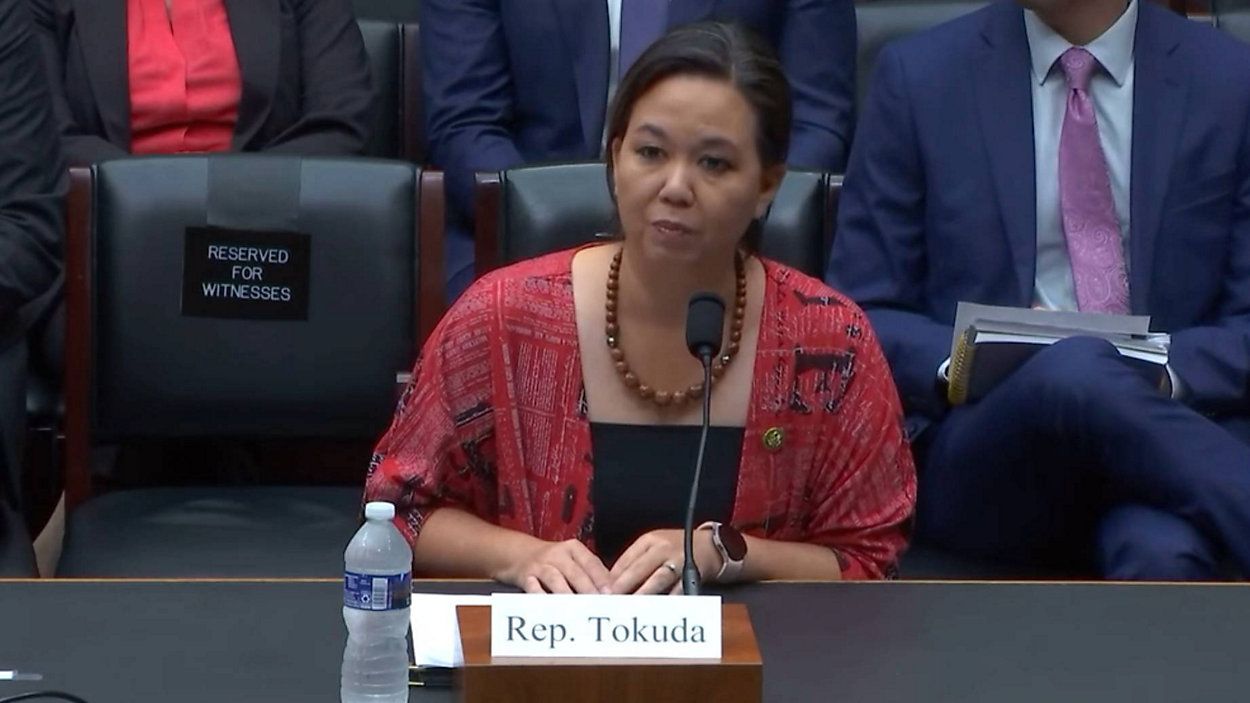U.S. Rep. Jill Tokuda introduced new legislation this week aimed at expanding workforce training programs and creating better career pathways in rural communities.
The Creating Access to Rural Employment and Education for Resilience and Success Act, which Tokuda co-introduced with Rep. Nick Langworthy, R-N.Y., would allow the agriculture secretary to allocate Rural Innovation Stronger Economy grant program funds to support career pathway programs or industry partnerships in key sectors like public utilities, conservation practices and management, health care, child care, manufacturing, agribusiness and other fields.
“Hawaii has one of the highest costs of living in the country, which means that too many of our people are getting priced out of paradise,” Tokuda said in a statement released on Thursday. “We need sustainable career pathways that lead to well-paying jobs that make it possible for our people to work, live, and thrive in rural and remote America.
“I am pleased to co-lead the CAREERS Act with my colleague Rep. Nick Langworthy to expand workforce training programs and create career pathways in our rural communities,” she continued. “By providing grants in key sectors such as public utilities, child care, agriculture, health care, manufacturing, and more, we will strengthen rural America’s ability to support and uplift their communities and our nation as a whole.”
Langworthy said the measure would address skilled worker shortages in his Western New York district.
“The CAREERS Act aims to close the skills gap by investing in pathway training programs and creating meaningful partnerships with private sector stakeholders across sectors — from manufacturing to health care,” he said. “If enacted, this legislation will work to bolster rural economies and innovation, making them more competitive and sustainable well into the future.”
Under the CAREERS Act, eligible programs could pursue competitive grants of $500,000 to $2 million. The agriculture secretary would also have the flexibility to consider other industry sectors if a local workforce board deems it to be in high demand.
The bill has received support from industry groups including the Associated Equipment Distributors, American Telemedicine Association, the National Association of Rural Health Clinics, the National Rural Water Association, International Dairy Foods Association, the Rural Broadband Association, the Association of Equipment Manufacturers, National Association of Workforce Boards and others.
“Rural communities face particular challenges in preparing a skilled workforce to meet the diverse needs of their local economies,” said LeAnn Curry, executive director of the Association for Career and Technical Education. “The CAREERS Act would help the industries within these communities support career pathway programs and sector partnerships to address the workforce development obstacles in rural America. ACTE is proud to endorse the bill and offer our support toward fostering growth across critical sectors of the American economy.”



